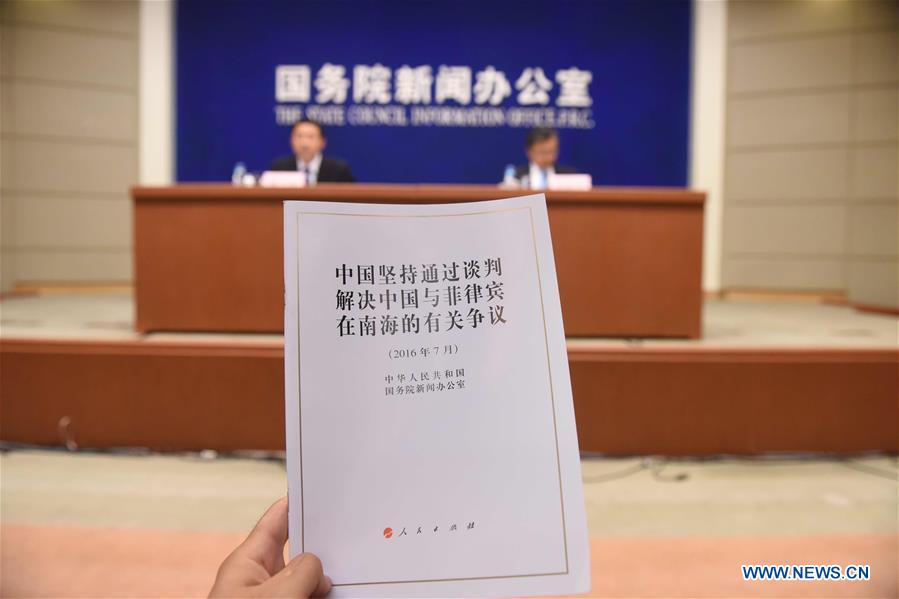中国发布白皮书重申中国在南海问题上的立场
中国国务院新闻办公室已发布白皮书,宣告中国在中国南海问题上的立场。
China’s Information Office of the State Council has released a white paper declaring the country’s position on the South China Sea issue. It comes one day after an international arbitration tribunal made the award in favor of the Philippines over its territory dispute with China.

Photo taken on July 13, 2016 shows the white paper titled "China Adheres to the Position of Settling Through Negotiation the Relevant Disputes Between China and the Philippines in the South China Sea" in Beijing, capital of China. The Chinese government on Wednesday issued the white paper. (Xinhua/Chen Yehua)
The historical facts collected in the white paper show that China was the first not only to discover, name, and explore the South China Sea islands, but also to exercise sovereignty and jurisdiction over them.
After the Second World War, China retook the islands occupied by Japan. The South China Sea islands, as seen in the map published by the Chinese government in 1948, fall within the “dotted line.”
The white paper discloses that the Philippines has been “invading” the islands and reefs in the South China Sea by force since 1970s, and started to build military facilities since the 1980s, not to mention harassing and attacking Chinese fishermen and boats. The white paper slams those actions that have persistently intensified tensions.
China has insisted on solving the dispute with the Philippines through diplomatic ways. In fact, the two countries have both agreed to settle through bilateral negotiation.
But the agreement was ignored by the Philippines, which filed an arbitration case with a court in The Hague in 2013. China called it an act of bad faith which has abused the dispute settlement procedures regulated by the United Nations Convention on the Law of the Sea. China has stated it will not accept the award made by the international tribunal.
China still insists on and encourages negotiation to settle the dispute with the Philippines and other countries directly concerned, and uphold the freedom of navigation and overflight in the South China Sea.







